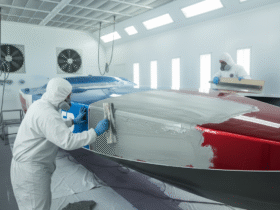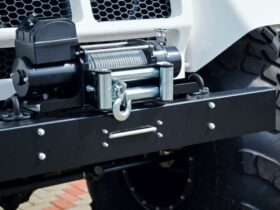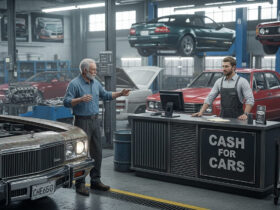When you first acquire a car, one name keeps popping up: a car mechanic. Who exactly is a car mechanic? Why would you need to visit one, and when should that visit happen? How do you even prepare for such a meeting?
These are some of the questions that plague most new car owners. Even veteran owners stumble through these daunting doorways, wrestling with the unpredictability that car maintenance or repair can bring. This blog post aims to demystify these concerns and present you with a comprehensive guide on what to expect during your first visit to a car mechanic.
Indeed, when it comes to car maintenance and repair, there’s an aura of mysticism that surrounds mechanics’ workshops, one that often escalates an already stressful situation. Let’s strip that away together, and turn the alien terrain of a mechanic’s garage into familiar ground.
WHY Visit a Car Mechanic?
As a car owner, your relationship with a car mechanic is crucial to the longevity and efficacy of your machine. Faulty brakes, oil leaks, engine problems, or just routine maintenance, are all reasons why you may need to make a visit. A good mechanic offers necessary repairs or preventative action to ensure your vehicle remains safe and roadworthy.
However, walking into a car mechanic’s workshop for the first time can be somewhat daunting. Will you understand the technical jargon? Will the charges be fair? Is the mechanic trustworthy? Teaming up with a great mechanic shouldn’t resemble rolling the dice. It’s all about preparedness and a little knowledge.
WHO to Seek: Your Right Mechanic?
Finding the right mechanic might seem like finding a needle in a haystack, but it’s not as challenging as one may think. Begin your quest with personal recommendations from family and friends. Then, dig into online reviews and make a shortlist.
Check the credentials, certifications, and memberships of your prospective mechanics. A mechanic’s affiliation or certification from well-known automotive organizations is a good sign of their reliability and competence. And lastly, meet with your shortlisted mechanics to gauge their communication style, honesty and work ethics, because trust is non-negotiable.
WHAT to Bring: Essential Paperwork
The more information a mechanic has about your vehicle’s history, the better equipped they are to diagnose and treat any problems. Hence, bring along your car’s service records, operating manual, and any warranty documentation.
Also, prepare a well-defined list of symptoms or issues your car is experiencing, no matter how trivial they might seem. This can help your mechanic pin-point potential issues.
WHEN to Visit: The Timing
Routine maintenance visits, ideally, should align with the guidelines laid out in your vehicle’s operating manual. However, if your car is squealing, groaning, leaking or stuttering, it’s signalling an immediate visit. Ambiguity lurks though: as a new driver, you might not recognize these signs, and that’s entirely okay. When in doubt, err on the side of caution, and make that call.
The EXPERIENCE Inside: Entry to Exit
Entering the workshop can be sensory-overload for first time visitors. The distinct smell of grease, the buzz of machinery, and the chatter of mechanics may hit you all at once. Your mechanic will usually start by dialoguing about the symptoms your car has been showing, and your own suspicion about what’s wrong. They’ll then carry out a diagnostic test, followed by a discussion on the results, proposed solutions, and costs involved.
Unplanned delays should also be expected. Cars are complex, and sometimes the issues aren’t immediately identifiable or repairable on the spot.
Pros and Cons
One of the advantages of having a trusted mechanic’s relationship is it leads to better longevity of your car; regular servicing can pre-empt many problems. A dependable mechanic can also provide advice on future car purchases or maintenance choices.
Conversely, finding the ideal mechanic may involve enduring a few lapses in service or disagreements over charges. This can be disheartening, but perseverance is key.
CONCLUSION
Your first trip to a car mechanic is an adventure, a dive into unfamiliar territory. Outfitted with the pillars of your auto-education from this guide, you can navigate with confidence and lessen the inherent anxieties associated with such an encounter.
Seeking a mechanic’s service isn’t an erudition of automotive knowledge, but a symbiosis, where you share in the custody of maintaining your car’s health. Together, you turn the gears that drive your vehicle’s longevity. Equipped with this guide, you can step into the light of knowledge, as even the darkest shadows reveal their contours under the glow of informed vigilance.











Find Us on Socials